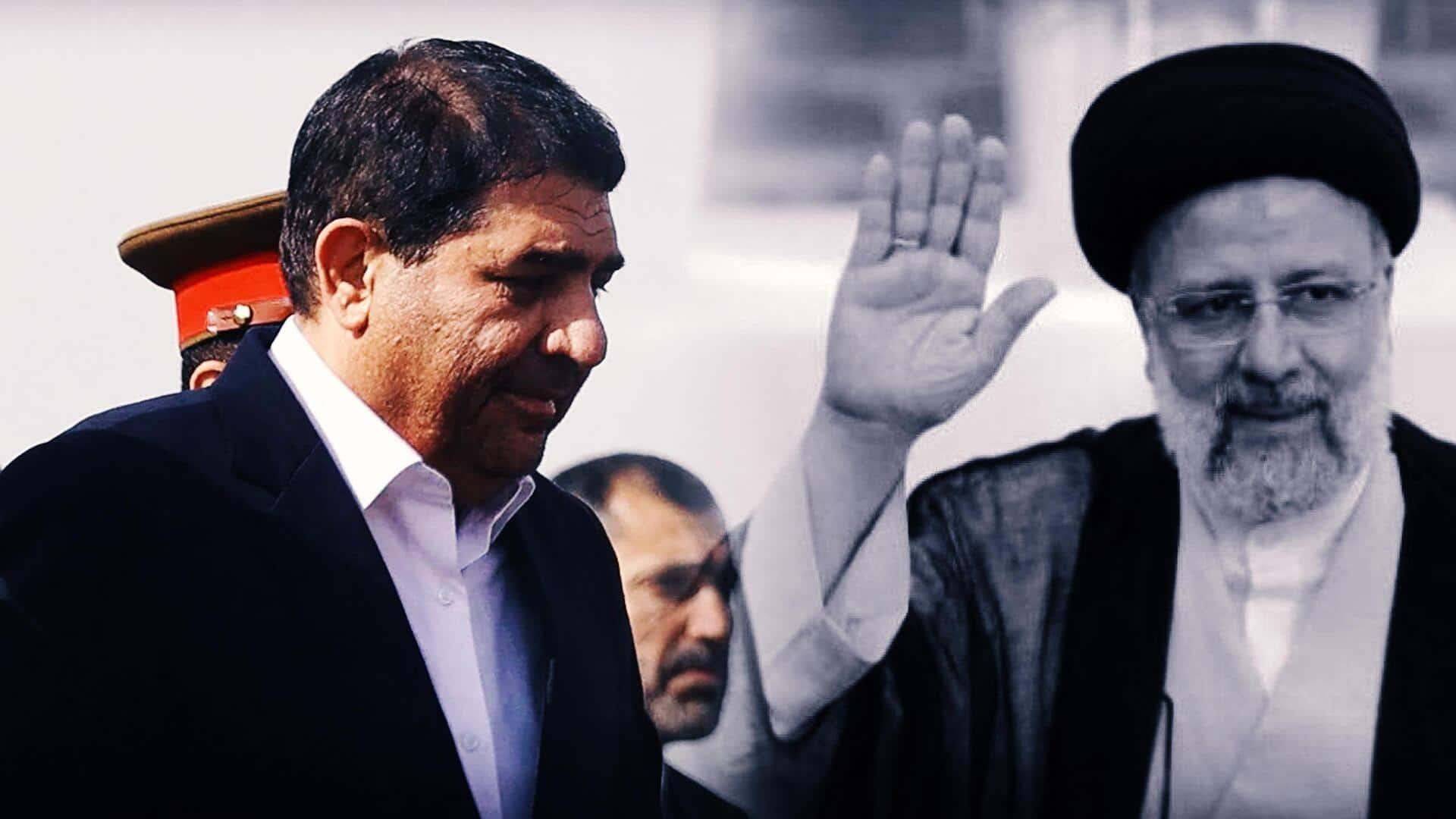
After Iran President Raisi's death, Mohammad Mokhber to take over
What's the story
Iranian President Ebrahim Raisi and his Foreign Minister Hossein Amir-Abdollahian were reported dead after the helicopter carrying them crashed last night. Following the death of President Raisi, First Vice President Mohammad Mokhber (69) will take over the presidency in an interim capacity as per constitutional protocols in Iran. The aircraft was en route to the city of Tabriz, crossing mountainous terrain in heavy fog when it crashed.
Leadership transition
Mohammad Mokhber steps in as interim president
Mokhber is a seasoned political figure with close ties to Supreme Leader Ayatollah Ali Khamenei. He has held significant influence within the regime and previously headed Setad, a powerful state-owned foundation. A council comprising Mokhber, Parliamentary Speaker Mohammad Baqer Qalibaf, and Judiciary Chief Ghollamhossein Mohseni Ezhei is tasked with organizing a new presidential election within 50 days. This transition must receive approval from Supreme Leader Khamenei.
Past controversies
Mokhber's controversial tenure at Setad
Mokhber, born on September 1, 1955, has been deeply entrenched in Iran's political and economic spheres. He assumed the role of first vice president in 2021 following Raisi's election. His tenure at Setad was marked by controversy and sanctions. In 2010, the European Union included him in a sanctions list for alleged involvement in nuclear and ballistic missile activities; however, he was removed from this list two years later.
International relations
Mokhber's involvement in arms supply to Russia
In October last year, Mokhber was part of a team of Iranian officials who visited Moscow and agreed to supply surface-to-surface missiles and more drones to Russia's military. This team also included two senior officials from the Revolutionary Guards and an official from the Supreme National Security Council.
Background
Raisi's political importance
This comes at a sensitive time for Iran. The country—led by President Raisi and Supreme Leader Khamenei—recently launched an unprecedented drone-and-missile attack on Israel. Iran has also enriched uranium to levels closer than ever to weapons-grade. Additionally, the country has been facing years of mass protests against its Shiite theocracy, driven by an ailing economy and women's rights issues. The situation is further complicated by the Israel-Hamas war, which is inflaming tensions across the broader Middle East.